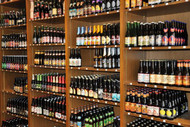Over the past few years, people worldwide have experienced an incredible rise in interest in non-alcoholic wines. Having once been dismissed as niche products, they are now firmly in the beverage mainstream, driven by consumers seeking healthier alternatives without sacrificing taste and experience. From health-conscious individuals to those abstaining for personal or religious reasons, the appeal of non-alcoholic wines has increased drastically. But what is behind this global trend? Here in this article, we explore the driving factors contributing to the increasing prey of non-alcoholic wines and what are some of the elements that are disrupting the wine industry in the process.
Health and Wellness Trends
The above premise accounts for the rising trend of non-alcoholic wines, mainly attributed to an increasing interest in health and wellness. As more consumers embrace a healthy lifestyle, they’re looking for ways to cut back on their alcohol consumption without giving up wine altogether.
Lower Health Risks from Alcohol-Related Illnesses
Drinking has been associated with an array of health problems, including liver disease, high blood pressure and a greater risk of cancer. Non-alcoholic wines provide a healthy alternative and enable consumers to experience the taste and elegance of wine while avoiding health risks.
Lower Calorie Intake
Other key benefit of non-alcoholic wines is lower calories. One glass of conventional wine has up to 125 calories, while non-alcoholic variants often have fewer than 30 calories per glass. As a result, they are a fantastic option for those who want to maintain their weight without giving up on a glass of wine.
Mental Clarity and Productivity
It affects cognitive function and productivity. You will feel sluggish and mentally cloudy. Non-alcoholic wine is also a preferred option among professionals and athletes, or all those who must remain sharp and focused but also want to indulge during social occasions.
The Rise of Mindful Drinking
As people become increasingly aware of their alcohol consumption, the idea of “mindful drinking” has become popular. This movement advocates for people to enjoy drinks that complement their personal well-being and lifestyle choices.
The Reluctant Non-Drinker
In many cultures, of course, consuming alcohol is intertwined with socializing. The stigma surrounding abstaining from alcohol is slowly fading, in no small part due to the growing number of premium non-alcoholic options now available. You can now socialize without feeling pressured to drink.
Celebrity and Influencer Endorsements
Notable figures like celebrities and wellness influencers have been critical to the alcohol-free beverage boom. With more celebrities publicly declaring their love of non-alcoholic wines the movement is really gaining traction with mainstream consumers.
The Future of the Wine Production: New Technology
The non-alcoholic wines have traditionally been lambasted for their absence of depth and complexity of flavor. But recent developments in winemaking technology have dramatically improved quality.
Enhanced Techniques for De-Alcoholization
Newer de-alcoholization techniques including vacuum distillation and reverse osmosis enable winemakers to extract the alcohol without losing natural aromas and flavors of the wine. This yields non-alcoholic wines that are very similar in taste and texture to their alcoholic counterparts.
Improved blending and flavor integration
On the flip side, winemakers are trying out new methods to find complexity in their non-alcoholic wines. Well, here are some alternatives: They can make sophisticated and lovely amoebaways (low-sugar) and not quite wine made with good quality grapes, balanced against acidity, tannins and sweetness and aged well (in a barrel or tin).
Broaden Market and Consumer Pool
The development of the non-alcoholic wines market is a worldwide phenomenon, gaining traction as both new wine-producing players and their long-time peers invest in the alcohol-free segment.
Millennials and Gen Z Characters Shift Driving Demand
Younger generations are favoring healthier and more mindful approaches to drinking. Millennials and Gen Z consumers are more interested in products that reflect their values of wellness, sustainability and social responsibility. This change in consumer behaviour has led to the significant proliferation of the non-alcoholic wine sector.
More Availability and Accessibility
Non-alcoholic wines used to be hard to find outside of specialty shops. Today they are plentiful in supermarkets, online platforms, and restaurants around the world. The ability to easily try and integrate non-alcoholic options into a lifestyle has expanded significantly.
Cultural and Religious Considerations
In contrast, non-alcoholic wines offer an amazing alternative for folks who refrain from alcohol due to religious or cultural beliefs and want to join the celebratory occasions in their culture and traditions without compromising their ideas.
Platform for a Broad Spectrum of Consumers
Some religions and cultures discourage or prohibit drinking. Non-alcoholic wines enable people from these backgrounds to consume a wine-similar experience in a way they feel comfortable with.
Inclusion in Celebratory Occasions
From the big day to business functions, whether guests want to drink alcohol or not, nonalcoholic wines are being served at lots of celebrations. This means that everyone can join in the fun!
Environmental and Ethical Considerations
In consumer purchasing decisions, both sustainability and ethical consumption have become key drivers. Many brands of non-alcoholic wine are now focused on environmental sustainability.
Lower Carbon Footprint
The process the non-alcoholic stuff goes through is usually less carbon-heavy than traditional winemaking. As a result of less fermentation and aging, these wines use fewer resources, creating a more sustainable option.
Natural and Ethical Wine Production
Most non-alcoholic wine producers focus on organic farming and ethical winemaking. Ethical consumers are more likely to choose brands that align with their environmental beliefs.
Conclusion
The trend toward non-alcoholic wines is an indication of how consumer tastes and preferences are shifting toward health, mindfulness and inclusivity. Both the production process and a wide selection of quality non-alcoholic wines on the market has grown significantly and it’s quickly moved from something that was once half-heartedly reaching for your lips, to a viable and popular option amongst many Paul Rudd-types.
Related Articles:
7 Birthday Gift Ideas for Your Pregnant Loved One
